European elections: How The Brexit Party and Change UK compare
- Published
- comments
There are two new political kids on the block hoping to make an impact in the European elections in two weeks' time.
The Brexit Party and Change UK - The Independent Group both want to break what they say is the two-party stranglehold on British politics.
But what else do these would-be political insurgents have in common and where do they differ in their attempts to make a splash?
Leadership
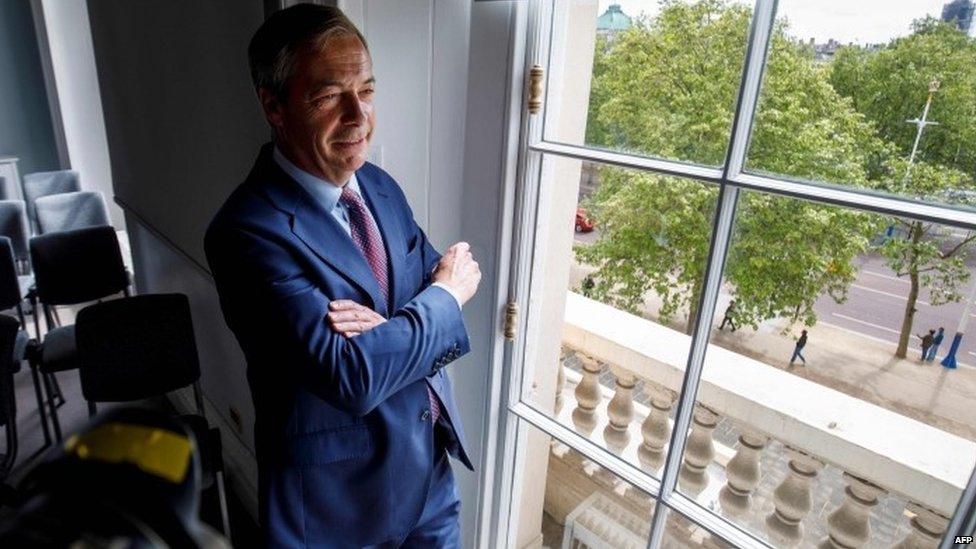
Nigel Farage has had a bet on his new party winning the most seats
The Brexit Party is very much the Nigel Farage show.
He wasn't its original leader, having stepped in after Catherine Blaiklock abruptly resigned over criticism of offensive comments on social media.
But he has always been the party's driving force and is likely to remain its dominant personality and figurehead.
His former party has accused Mr Farage of running an autocracy and things are likely to be much more tightly managed than they were during UKIP's own often chaotic rise to power.
Mr Farage is likely to rely on a small number of close allies, most notably Richard Tice - the businessman and financier who helped set up Leave.EU and is now party chairman.
Change UK's leadership arrangements are a little less settled.
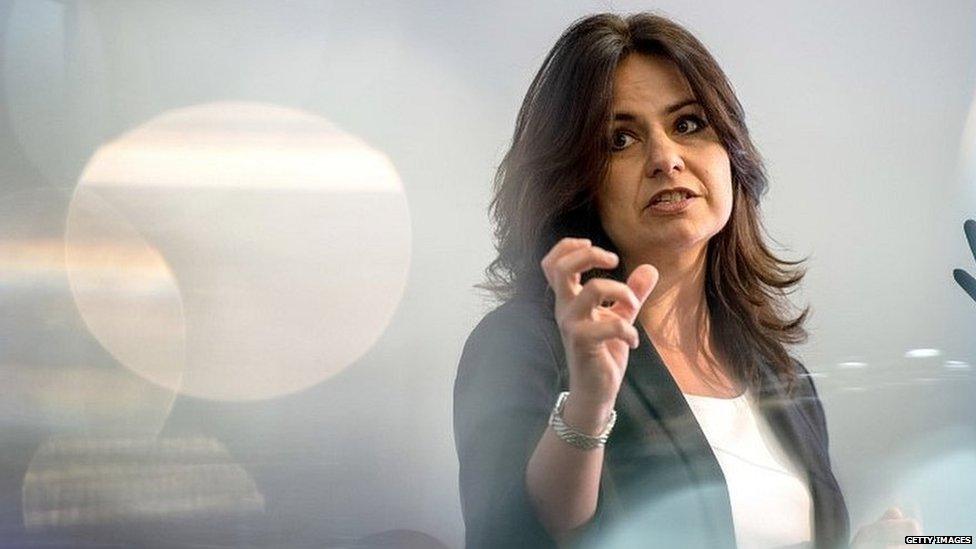
Heidi Allen is Change UK's interim leader but it also has a chief spokesman and convener
Former Conservative MP Heidi Allen is the party's interim leader and will see the new entity through the Euro elections.
It then plans to elect a permanent leader at its first conference in September, where the likes of Chuka Umunna and Chris Leslie could be in the running.
For the time being, Change UK seems to be an unusual mixture of traditional Westminster party and what one of its candidates cheerfully referred to as a "pop-up" enterprise.
Traditional in the sense that all 11 Labour and Tory MPs who helped form the group have been given "cabinet-style" roles - covering things like the economy and foreign affairs.
And "pop-up" in the sense that it aims to bottle and exude the energy of a start-up, both in terms of its rallies - an approach also followed by the Brexit Party - and its concentration on social media to communicate.
Objectives and tactics
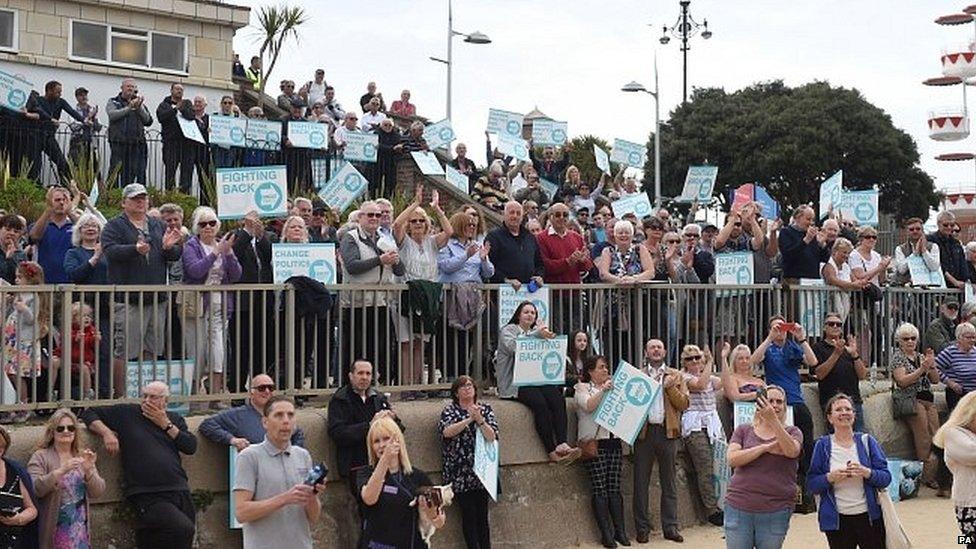
Both sides have been drawing big crowds - but in home territories?
Plain and simple, The Brexit Party wants, and arguably needs, to "win" the European elections.
Indeed, if it fails to top the polls and get more seats than the Conservatives, Labour and UKIP, it will be portrayed as a defeat for the party.
Change UK's immediate objectives are less vaunted.
It hopes to get several MEPs elected, but it is competing for votes with the Lib Dems and the Greens who just enjoyed their best local election performances for years.
Change UK has openly admitted it is using the Euro poll to "test its brand" - with a view to a future general election.
And, in that, it has a lot in common with The Brexit Party.
Mr Farage has suggested it could take a general election to decisively push the UK towards Brexit and the party is starting the process of recruiting candidates in all 650 constituencies.
Where a party campaigns is often the best indicator of its intentions.
Change UK launched itself in Bristol, one of the most pro-Remain cities in England, and has been very active in London. Upcoming events will be held in pro-EU strongholds Edinburgh and Bath, as well as Sheffield and Cardiff.
In contrast, the Brexit Party is focusing in largely Leave areas, with its launch in Coventry, a walkabout in Clacton, a big rally in Peterborough and upcoming events in Lincoln and Durham.
Policies
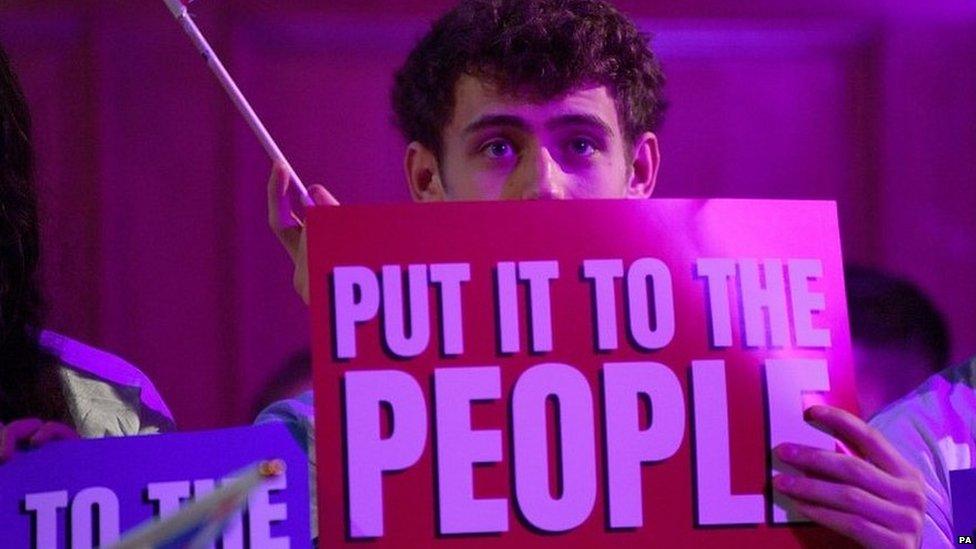
The two parties are not looking beyond Brexit at this stage
These are thin on the ground for both parties, which is not really a surprise given their relative infancy and the fact both are completely focused on Brexit.
Change UK has published a set of values and guiding principles, external and insisted its policies will be "evidence-based and not led by ideology".
These are broadly social democratic in outlook, with support for a mixed social market economy and the collective provision of public services.
But for the moment, its over-riding objective is to get another referendum on whatever Brexit deal is finally agreed - with the option to remain in the EU on the ballot paper.
Asked on Tuesday where his party stood on tax issues, Nigel Farage said anyone expecting detailed policies before the European elections would be disappointed - although he did signal he wanted to cancel the HS2 rail link.
He is focusing on the big picture, with the aim of the UK making a "clean break" from the EU as soon as possible and operating outside the customs union and single market.
To that end, he has suggested Brexit MEPs could play a leading role in the next phase of negotiations on the UK's future economic relations with the EU.
Money
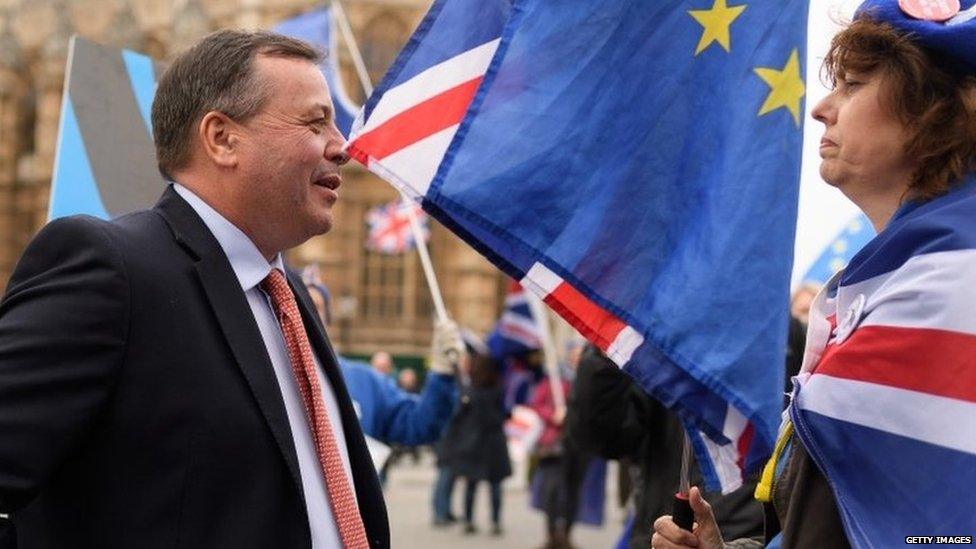
Arron Banks will not be giving money to The Brexit Party
Political parties need money, and lots of it, to fight UK-wide elections, but they also have to be upfront where it is coming from.
Both The Brexit Party and Change UK are trying to making capital out of the number of small donations they have received from well-wishers and supporters.
Change UK has been asking for donations of between £5 and £1,000 on its website, insisting it does not have "the big money or infrastructure of other political parties".
It has said it will name any donors in excess of £7,500, external and will publish accounts regularly declaring donations in excess of £500.
The Brexit Party says it has raised £2m in small donations of £25 each - accounting for 90% of what it has been given so far. The exception to this is a single £100,000 donation from an as-yet unnamed source.
Mr Farage has said he is now courting a number of "big bucks" former Tory donors.
One person who won't be giving money is businessman Arron Banks, Mr Farage's friend and fellow "bad boy of Brexit".
Mr Banks, whose financial backing for the Leave.EU campaign in the 2016 referendum led to multiple investigations as well as a £60,000 fine for his Eldon Insurance, has "unfinished business" stemming from those matters, Mr Farage has said.
Branding and publicity
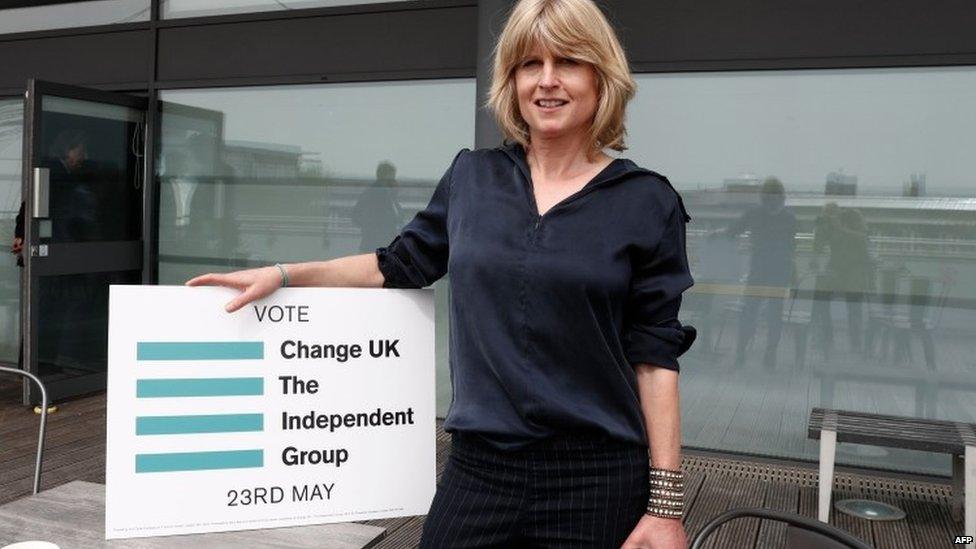
Change UK lost a logo but gained a number of high-profile candidates
Column inches and TV coverage are the best form of publicity any new political party can hope for - as it is largely free.
Choosing high-profile candidates with strong name recognition certainly helps as both parties appeared to have wised up to.
The Brexit Party has Ann Widdecombe, Claire Fox and Annunziata Rees-Mogg in its ranks while Change UK has Rachel Johnson, Gavin Esler and Stephen Dorrell.
Change UK hit a minor snag when its logo was rejected by the electoral authorities for containing a hashtag and the acronym TIG - deemed not to be recognisable to voters.
Its choice of name was also not popular with the change.org petition website or with those who think, unlike its rival, it is not sufficiently clear what it stands for.
Both parties have faced questions over some of their candidates - although Change UK have actually had to drop two of them over controversial comments on social media.
And neither is building bridges with other groups on their side of the Brexit argument.
The Brexit Party is in a state of virtual war with UKIP. Change UK, meanwhile, insists it is a member of the "Remain Alliance" but has reportedly spurned offers to co-operate with other pro-EU parties.